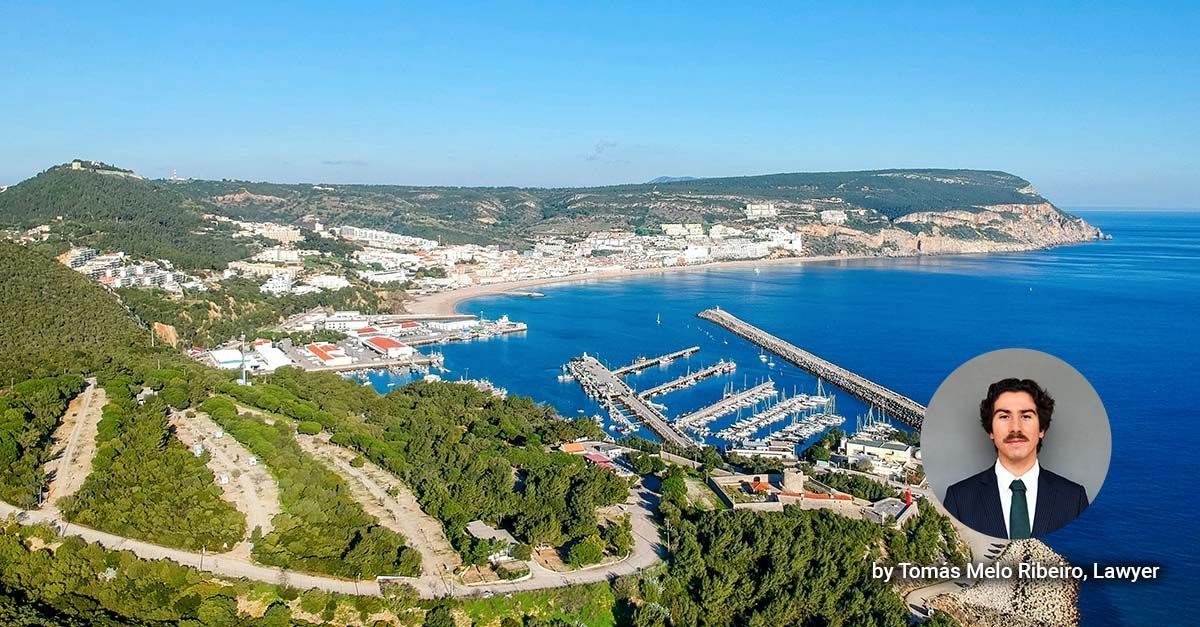2024: Year in Review
As 2024 comes to a close, it is an opportune moment to reflect on the year’s most significant developments.
This review highlights the relevant changes and advancements that impacted the legal and societal landscape in Portugal, organised into five key areas:
- Changes in Immigration and Citizenship Policies.
- Tax-Related Changes.
- Real Estate Updates.
- Digitalisation of Portuguese Services.
- Global Events and Their Indirect Impacts.
Changes in Immigration and Citizenship Policies in 2024
At the start of 2024, specifically on 5th of January, significant amendments were introduced to the Portuguese citizenship law. Among the most notable changes was the adjustment of the five years required to pursue citizenship, which now begins from the date of the residency application rather than the issuance of the first residency permit. This change aims to make the citizenship process more efficient and streamlined for applicants.
This amendment also introduced biometric data collection for citizenship applications and implemented restrictions on applications from individuals considered potential threats to national security due to involvement in terrorist or criminal activities.
The path to Portuguese citizenship for Sephardic Jews remains available, exempting applicants from the requirements of legally residing in Portugal for a minimum of five years and demonstrating proficiency in the Portuguese language, just as before the amendment.
Changes were also introduced for European Union citizens seeking to establish residence in Portugal, as outlined in Decree-Law No. 13, dated 22 January 2024. These amendments pertain to the Registration Certificate for EU citizens and the Permanent Residence Certificate for EU citizens.
In the political landscape, 2024 marked a significant milestone for Portugal as the nation celebrated the 50th anniversary of its democracy. Despite its long history as a country, Portugal's democratic journey only began relatively recently, in 1974.
In March 2024, Portugal held general elections, resulting in a notable political shift from the left to the right. The Democratic Alliance (AD), a coalition between the Social Democratic Party (PSD) and the People’s Party (CDS), emerged as the leading political force, securing 29.52% of the vote share. Prior to the elections, the Socialist Party (PS) had been the ruling party. Many of the key changes introduced in 2024 followed this electoral outcome, particularly measures aimed at addressing the housing crisis and alleviating tax burdens for young taxpayers.
Besides, the elected Portuguese Prime Minister unveiled an Action Plan for Migrations in June, poised to reshape the landscape of the Portuguese immigration framework. The Government put forth 41 tangible measures to navigate the prevailing challenges.
In 2024, the Agency for Integration, Migration, and Asylum (AIMA) was already operational, having been established in the final quarter of 2023. However, adjustments were necessary to refine its functioning. Notably, the legal framework governing the entry, stay, exit, and removal of foreigners from Portuguese territory (Law No. 23/2007, of 4 July) was amended through Regulatory Decree No. 1/2024, issued on 17 January. The primary objective of this amendment was to simplify and streamline immigration processes, ensuring greater efficiency and effectiveness.
Furthermore, in September, AIMA launched new service centres to enhance immigration processing and better address the growing challenges, particularly the backlog of over 400,000 cases.
In October 2024, a new
online platform was introduced to expedite citizenship requests, to reduce processing times by 50%. Developed by the Instituto dos Registos e do Notariado (IRN), this platform was designed to address and efficiently manage citizenship processes. Importantly, its use is
exclusive and mandatory for lawyers and solicitors registered with the Portuguese Bar Association and the Solicitors Regulation Authority.
Tax-Related Changes in 2024
With the conclusion of the Non-Habitual Resident (NHR) Tax Regime – applications remain possible until March 2025 under specific conditions – the government introduced a new regime, IFICI+, at the start of the year. Initially unnamed and referred to as Article 58.º-A, this regime retains similar tax rates but adopts a more exclusive approach. It is tailored to individuals engaged in sectors such as education, research and development (R&D), and entrepreneurial activities.
Another tax-related update in 2024 was the revision of the Personal Income Tax (IRS) for young professionals. The changes expanded the benefit rates, increased the age limit for beneficiaries, and provided a total exemption from taxes in the first year. This measure aims to alleviate the financial burdens of young taxpayers.
Looking into the corporate side, in November of this year,
CAE Rev. 4 was introduced, set to take effect in January 2025. This update to the Portuguese Classification of Economic Activities reflects the need to adapt to the evolving business landscape. Additionally, the Portuguese tax authority has announced new regulations to ensure compliance with these updates. These regulations are aimed at streamlining tax reporting processes and providing clarity to businesses operating under the new classification system.
Real Estate Updates in 2024
Several measures targeting young taxpayers were implemented in 2024, with one of the most notable addressing Portugal's housing crisis. Effective from 1st of August, this measure grants tax exemptions on IMT and stamp duty for taxpayers aged 35 or younger when purchasing their first home, provided it is intended as their primary residence.
Additionally, Decree-Law No. 44/2024 established a public guarantee for housing loans for individuals up to 35 years old in Portugal.
The housing crisis remained a significant issue throughout 2024 and, regrettably, continues to persist globally. Rising housing costs and shortages of affordable housing have made homeownership and renting increasingly challenging for many families.
To adequately address this issue, Portuguese law regarding the modification of housing properties underwent significant changes. Owners may now alter the intended use of their property fraction from commercial to residential without obtaining approval from other co-owners, as long as it is intended for residential use. This update results from a new decree-law published on 8th January.
In addition, amendments were made to the legal framework for Territorial Management Instruments (RJIGT), creating new opportunities for construction on rural lands. This change is expected to increase the availability of affordable housing by unlocking the potential of rural areas for residential development.
Renovations were also made to the "mais habitação" package, designed to address the Portuguese housing crisis by promoting the availability of affordable housing. One of the more controversial aspects of this package was the local lodging policies, particularly the special contribution to local accommodation (CEAL), set at 15% and calculated based on factors such as the economic coefficient of local accommodation and urban pressure coefficients. The 2024 renovation by the new government abolished this special contribution.
Digitalisation of Portuguese Services in 2024
In 2024, the world has long been digital, and public services are increasingly benefiting from digitalisation. This shift has proven to enhance efficiency, accessibility, and transparency, while always prioritising the safety of Portuguese citizens and residents. However, the digitalisation process must be thoughtfully implemented to address potential challenges, ensuring that the goal of improving services is achieved without causing delays.
The primary modification in 2024 regarding this aspect was the update to the Portuguese citizen card. Both the design and technological features were boosted, including the introduction of contactless technology. This allows for electronic authentication and digital signatures without the need to insert the card into a reader. Additionally, the chip has been relocated to the back of the card and upgraded to a dual interface, supporting both contact and contactless functionalities. This chip now also supports biometrics, identification, and travel applications.
Digital ID cards and driving licenses now have legal validity for the first time in Portugal. This occurs under the new amendments outlined in Law 19-A/2024. This is a step towards ensuring the safety and convenience of Portuguese citizens and residents.
Portuguese airports saw in 2024 the introduction of biometric innovations. Initially implemented at Lisbon and Porto airports, this technology was later expanded to Faro, Funchal, and Ponta Delgada airports. This innovation is exclusive to TAP Air Portugal flights and is available to travellers aged 18 and above. Enrolled passengers can navigate the airport seamlessly, using facial recognition at biometrically enabled Vision-Box Security Gates. At boarding, travellers can utilise Vision-Box Self-Boarding Gates, benefiting from the advanced AI-powered Vision-Box Facial Recognition Algorithm.
Other digitalisation developments related to Portugal, though not implemented by Portugal, have been introduced by the European Union and pertain to travel. The EU launched the Entry/Exit System (EES), an automated IT system designed to register non-EU nationals travelling within the region. In addition to EES, the European Travel Information and Authorisation System (ETIAS) was introduced. This mandatory travel authorisation is directly linked to the traveller’s passport and aims to improve both border security and convenience for tourists.
This consolidated approach underscores the state's commitment to delivering services in a streamlined and integrated manner, both physically and digitally, thus ensuring an intuitive and upgraded user experience.
2024 Global Events and Their Indirect Impacts
2024 was a year marked by numerous events, some new some ongoing from previous years. Many of these events had an indirect impact on Portugal and, consequently, on LVP Advogados. In the final section of our 2024 review, we will focus on these influences.
This year, we continued to observe the Russian-Ukrainian conflict, unfortunately without a peaceful resolution in sight. This led to a humanitarian crisis and the largest refugee movement in Europe since World War II. In light of this crisis, Portugal extended the temporary protection titles granted to Ukrainian citizens residing in the country twice: once in March for a period of 10 months and again in December, extending the validity of temporary protection until March 2025.
Another important event concerns UK citizens and their families residing in Portugal during the transitional period, which ended on 31st December 2020. Those who wish to continue living in the country need to regularise their residency under the Withdrawal Agreement. This process ensures exemption from EES registration and allows them to benefit from the terms of the Withdrawal Agreement.
One of the key global events that shaped 2024 and will continue to influence 2025 was the US presidential election, with Donald Trump emerging as the winner. In the aftermath of the election, there was a notable increase in online searches for relocating abroad, with Portugal standing out as one of the top destinations.
Portugal has emerged as one of the preferred destinations for relocation by Americans for several compelling reasons. These include the country's stunning landscapes, the affordability of starting a new life, the high standard of public services such as healthcare and education, and its safety, which ranks among the top 10 in the world.
Additionally, Portugal's welcoming visa policy further strengthens its appeal to foreigners, particularly those from the US and UK. The policy caters to a wide range of individuals, from digital nomads to highly qualified professionals, with options such as the Golden Visa for investors and the athletics visa. This makes the Portuguese visa policy comprehensive and attentive to the specific needs of each individual.
The tax benefits tailored to highly qualified foreign talent increase Portugal's attractiveness as well. This puts Portugal in the selective group of countries that have created these benefits to attract foreigners, aiming to stimulate its economy by bringing in new ideas and knowledge and offering foreigners the opportunity to enjoy living in the country.
If Portugal is on your radar or you are curious about the available visas and tax benefits, reach out to us! We offer personalised guidance to help you choose the best options and make your transition to life in Portugal seamless.
A final note goes to our valued clients and partners! We are truly grateful to have you with us and extend our best wishes for a prosperous and fulfilling 2025. We look forward to continuing to be a part of your journey and hope you continue to enjoy all that Portugal has to offer.











